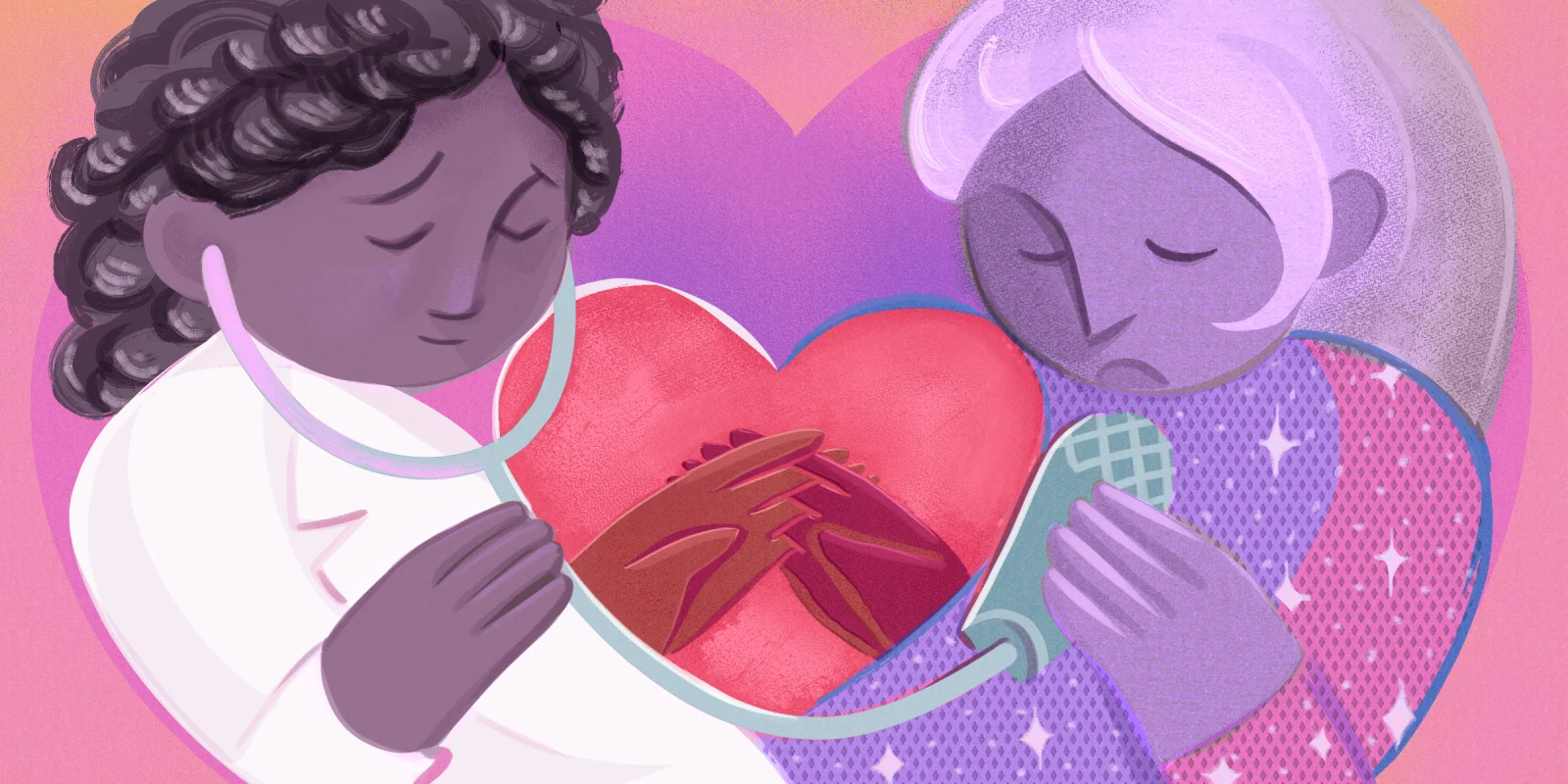Compassion is vital to ensuring the welfare of our patients. As healers, every interaction we have with a patient has the potential to be therapeutic or detrimental to their healing. It has been well-documented that patients who are treated with compassion experience greater satisfaction in their health care, have better outcomes, and are more likely to be compliant. However, compassionate patient care is much more than simply being “nice” to patients. It is about acting without preconceived notions of who patients are, and allowing patients to present their story on their own terms. During my time in medical school, I have observed an inconsistency in compassion from clinicians when it comes to treating psychiatric patients.
Although I understand that caring for patients with severe mental illness comes with unique challenges that require substantial time and resources, I have found the way these patients are treated to be unsettling. Oftentimes, psychiatric patients and patients with substance use disorders in the hospital are met with considerably less understanding compared to patients admitted for traditional medical concerns, and are subjected to increased bias. This bias comes up in a multitude of ways, including (but not limited to): blaming patients for their illnesses; minimizing the severity of their concerns through joking about patients; and resenting patients.
Blaming Patients
Throughout my time in medical school, I have noticed a disconcerting double standard whereby illnesses such as chronic kidney disease and malignancy are seen as tragic misfortunes (and rightly so), while psychiatric illnesses are considered to be more within the patient’s control, and thus are met with less compassion and understanding. In practice, this labeling happens when clinicians encounter patients presenting with acute exacerbation of a medical condition as a result of noncompliance with their treatment plan and worsening of their mental illness. In these instances, teams will wonder why the patient “let” their condition deteriorate to such a degree. I understand these teams’ frustrations, but I also wonder what other factors, invisible to the team, could have impacted the severity of the clinical presentation.
On the wards and in the clinic, it has become apparent to me that a clinician’s empathy is limited by their own biases. I distinctly remember working in the ED this past spring and seeing a patient who came in with concerns of withdrawal after relapsing on heroin. His chart simplified the story he had shared and stated that he “stopped taking all of his medications and decided to take heroin instead.” The note suggested his relapse was a conscious decision. There was no mention of his years of sobriety, recent financial struggles, homelessness, and loss of transportation to his methadone clinic. Although it is important to hold patients accountable for their health care, I wonder if at times patients are judged too harshly for their clinical misfortunes.
This harsh judgment may be a result of the deficiencies of medical school curricula. I believe that while effective communication skills and empathetic listening are taught in most medical schools, integrating cultural sensitivity into clinical practice is an area where some curricula fall short. Without proper cultural sensitivity training, clinicians may have a harder time adequately empathizing with patients different from themselves. Moreover, the overall culture in medicine oftentimes encourages clinicians to maintain a level of emotional detachment from their patients, which can lead clinicians to become desensitized and inured to the struggles of their patients.
Joking About Patients
The lack of understanding toward psychiatric patients in the hospital is also evident in the everyday rhetoric used to discuss patients with mental illness. We have likely all overheard another clinician making a remark or joke about a frustrating patient case. For example, while on non-psych rotations, I would often hear clinicians joke about whether we “have to go see the patient” or if we could just “leave them there and let them catch up with their buddies” in the psych section of the ER.
Though humor can be an important coping mechanism, I wonder about the impact of these types of jokes on patient care. Can patients sense when their doctors are laughing at them? What must it feel like to be a patient and wonder if your doctor is judging you or doubting that your experience is real? Most people can never really imagine themselves being psychiatric patients if they have never been in close proximity to mental health crises. And yet, mental illness does not discriminate and can befall anyone.
Resentment Toward Patients
In addition, while working in a hospital I’d regularly hear clinicians sigh when it was time to see a patient with psychiatric concerns, or verbalize that they “hate the psych patients.” In the ER, these patients would also be saved for later with the hope that the “chore” would be passed on to someone else. In other instances, there would be speculation about whether a patient was merely attention-seeking and malingering. Even when the validity of the patient’s concerns wasn’t being called into question, there was still resentment toward the patient because of how long it would take to sit down and parse through their complex history, pause between symptoms of their illness, and figure out a treatment plan. This frustration highlights the need for increased empathy and sensitivity when interacting with vulnerable patient populations, such as those with severe mental illness.
Despite what some clinicians may think, there are many patients with psychiatric conditions who have enough insight to realize the challenges associated with their diagnoses and how those challenges impact their treatment teams. For patients who are already struggling with potentially lethal conditions and ongoing feelings of worthlessness and abandonment, I can only imagine what it is like for them to feel like a burden to their doctors. During my very first inpatient psychiatry interview, I spent over an hour talking to a patient admitted for acute mania and bipolar 1 disorder. At the conclusion of the interview she said, “It really seemed like you cared about my story and what I was saying.” She went on to say that she often feels “listened to but not heard” while in the hospital and like “no one wants to see the crazy lady. Especially one that has been here a few times.”
This patient’s sentiments reveal the deleterious effects of the stigma many clinicians have toward psychiatric patients and other patients with less “traditional” concerns. In practice, this stigma directly contributes to the current societal mental health crisis. Moreover, this stigma may also exacerbate the current burnout crisis among medical professionals: If trainees and clinicians are constantly witnessing their colleagues judge and resent patients with mental illness, it may make it harder for struggling clinicians to speak up about their own mental health concerns.
While it is impossible to fully rid ourselves of bias in our thoughts and actions, my hope is that as clinicians, we can hold ourselves accountable for upholding our oath to do no harm and to improve the livelihood of our communities. Just as patients are deserving of a compassionate treatment team, clinicians are also deserving of grace throughout this process.
In order to help address the deeply rooted sigmas in health care against psychiatric patients, I propose the following:
First, all clinical training programs, regardless of the specialty, should incorporate exposure to patients with mental health issues and offer opportunities to discuss how mental health stigma is perpetuated in the hospital. This could be achieved through intentional residency didactic sessions that provide trainees with a safe space to unlearn misconceptions and gain new insight on mental illness.
Second, hospitals should adopt interdisciplinary care teams that proactively collaborate with psychiatry. This interdisciplinary collaboration would generate increased learning and open communication among those with expertise in mental health and those without.
As members of the health care profession, we owe our patients the same understanding and dignity we seek for ourselves and our loved ones. By adopting the strategies above, and by working to maintain our empathy, we can potentially improve the experience of psychiatric patients in the hospital and help destigmatize mental illness within society at large.
What other empathetic strategies can clinicians use when treating patients with severe mental illness? Share in the comments!
Abiba Salahou is a fourth-year medical student at Oakland University William Beaumont School of Medicine and member of the national Gold Humanism Honor Society. Abiba plans to serve diverse communities as a child and adolescent psychiatrist, and is passionate about restorative social justice, de-stigmatizing mental illness, creative writing, and food blogging. She tweets at @AbibaSalahouMed. Abiba is a 2022–2023 Doximity Op-Med Fellow.
Illustration by April Brust







